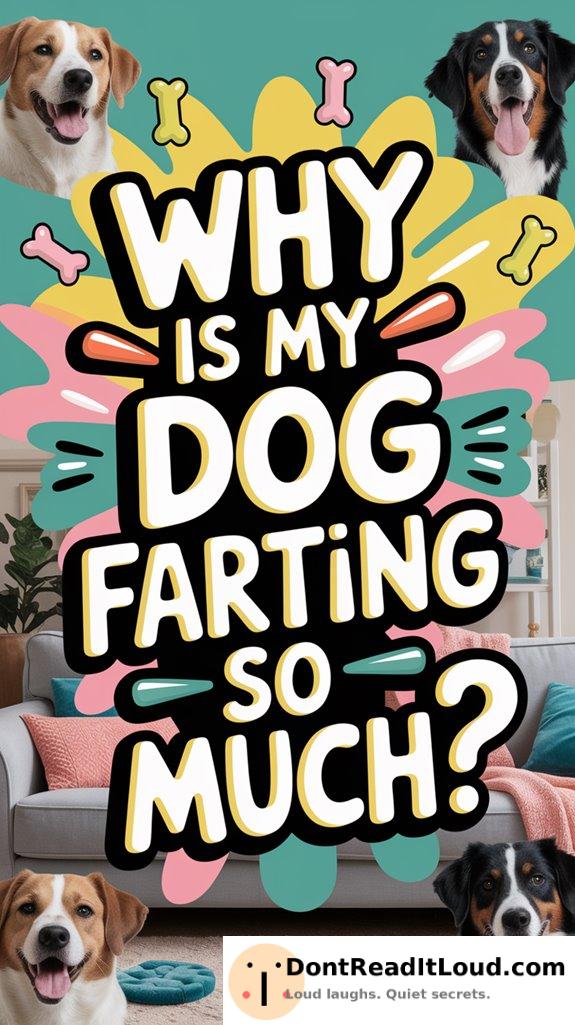
Your dog might be farting more because of recent diet changes, low-quality food, or certain eating habits. High-fat diets, dairy, and ingredients like soy or peas often lead to gas. Eating too quickly and swallowing air, especially in breeds like Pugs, can make it worse. Foods with fillers or sensitivities to ingredients such as wheat may also be to blame. If you want to learn about specific causes and solutions, keep reading.

If your dog is suddenly more gassy, their diet might be to blame. Changing what your dog eats can disrupt digestion and cause extra flatulence. Switching foods abruptly often upsets their system, making certain foods ferment more in their colon. Diets high in fat, spicy table scraps, or spoiled food may lead to gas. Many dogs are also lactose intolerant, so dairy can be a common trigger. Ingredients like soybeans, peas, and high-fiber foods are tough for dogs to digest and often result in gas.
Some dogs swallow a lot of air when they eat too quickly, leading to gas buildup. This is more likely if your dog eats fast, especially after exercise, or in competitive feeding situations. Breeds with short faces, like Pugs and Bulldogs, are more prone to swallowing air because eating and breathing can be harder for them. Slow-feeder bowls encourage slower eating and can help reduce this problem.
Some breeds are more likely to have digestive issues that cause gas. Boxers and French Bulldogs may develop certain digestive disorders, while German Shepherds often have sensitive stomachs. Terriers are more prone to conditions like Inflammatory Bowel Disease, which can also lead to flatulence. Knowing your dog’s breed and its typical health risks can help you watch for digestive problems.
The type of food you feed your dog also makes a big difference. Low-quality foods with fillers or artificial additives can upset their stomach. Foods with hard-to-digest carbohydrates, such as beans and soy, often lead to more gas. Diets heavy in red meat can produce especially smelly gas due to sulfur proteins. Choosing food made with simple, digestible ingredients may help cut down on flatulence. Flatulence can sometimes indicate dietary issues or gastrointestinal problems that might need further investigation.
Food sensitivities are another possible cause. Some dogs can’t tolerate certain foods like wheat, corn, or particular proteins, which may cause gas. If you suspect a sensitivity, try removing those ingredients from their diet.
Watch for signs of intolerance and talk to your vet for advice on the best diet for your dog. Addressing these factors can help keep your dog comfortable and your home fresher.
Conclusion
If your dog has started farting more, it’s often linked to their diet, how fast they eat, or occasional stress. Take a look at what they’re eating and consider switching to a more easily digestible food. If the issue continues, it’s a good idea to check with your vet to rule out health concerns. With a few adjustments and some attention to their needs, you can usually help cut down on the gas.



